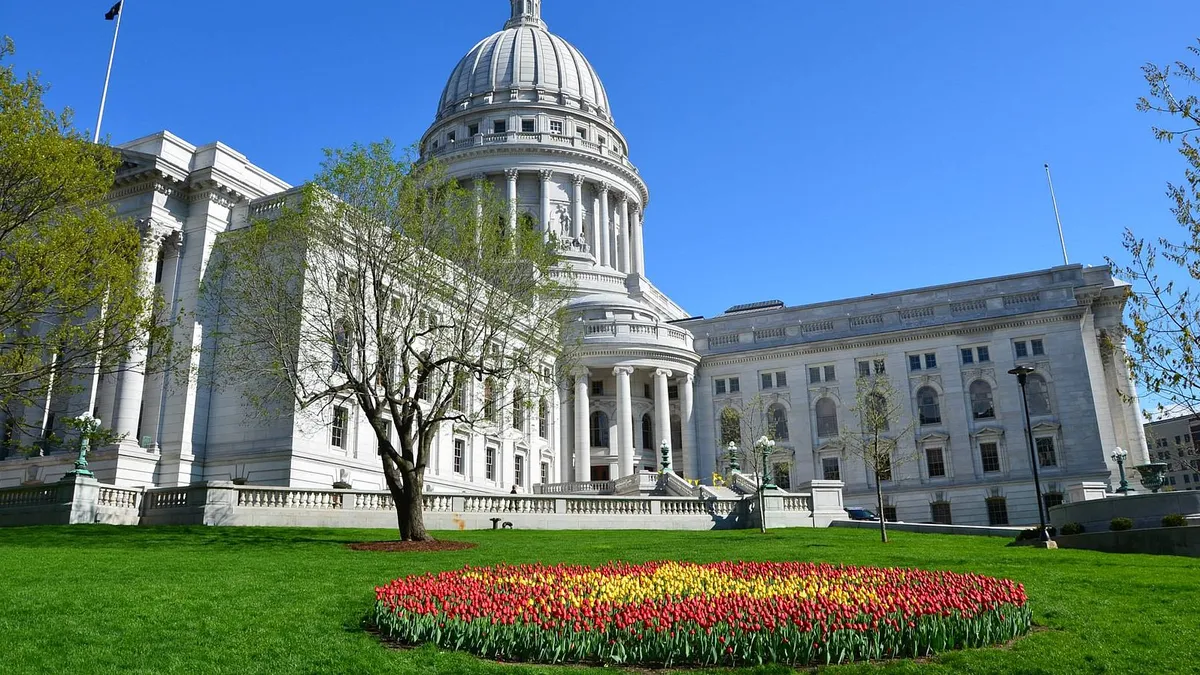Dive Brief:
-
Wisconsin regulators opened up an investigation last week to determine what costs utilities may incur from COVID-19-related disruptions.
-
The investigation is in response to an order issued by Democratic Gov. Tony Evers in response to a request by Public Service Commission (PSC) Chair Rebecca Cameron Valcq that allows regulators to order utilities to waive late fees and refrain from nonemergency power shutoffs, among other measures.
Dive Insight:
Twenty one U.S. utility regulators have mandated electric utilities suspend disconnections during the COVID-19 pandemic, according to the Energy and Policy Institute, which has forced 31 states as of Tuesday morning to issue a shelter-in-place notice that mandates residents stay at home unless leaving for necessities such as groceries.
The ensuing economic turmoil has led to a spike in unemployment and state regulators' moves are intended to prevent mass residential power shutoffs due to customers being unable to pay their monthly bills.
Some regulators are now looking at what those measures may cost utilities. Illinois regulators asked utilities to track all spending and Texas regulators instituted a ratepayer-funded tariff to reimburse electric retailers. Connecticut is tracking spending as well.
One of the big questions in the Wisconsin docket is whether utilities will be able to potentially recover expenses incurred as a result of these disconnection suspension and late fee waivers. As part of the investigation, the commission is looking for comments on how COVID-19 response measures have already impacted utility expenditures or how utilities expect costs to be impacted, and how utilities may get reimbursed or how they plan to handle the accounting.
Wisconsin investor-owned utilities (IOUs) are hoping the PSC allows utilities to seek recovery "of potentially significant costs associated with this emergency," the Wisconsin Utilities Association (WUA), which represents all IOUs in the state, wrote in a letter to regulators last week before the docket was opened.
"Such a deferral would provide needed financial support at a time when all aspects of the economy, including utilities, are facing great stress," WUA wrote. IOUs are also seeking regulatory deadline extensions, among other things.
"It is too early to say what costs may be but we will work with the commission and staff during this process," WE Energies spokesperson Brendan Conway said in a statement.
Electric co-ops in the state are still gathering comments, but anticipate their companies to take a hit from the crisis as well.
"The most obvious expense is associated with the waiver of late fees and the suspension of disconnects," Tim Heinrich, executive director of Municipal Electric Utilities of Wisconsin, which represents public power utilities in the state, told Utility Dive in an email.
"There are also general costs associated with responding to the crisis (e.g., additional [personal protective equipment], customer communications materials, changes in work schedules due to self-isolation, etc.). We appreciate the Commission's approach in setting parameters to allow utilities to track and defer the incremental costs of this public health emergency for potential cost recovery."
Comments on the investigation are due Friday.
Correction: Municipal Electric Utilities of Wisconsin represents public power utilities. An earlier version of this story mischaracterized the group.















